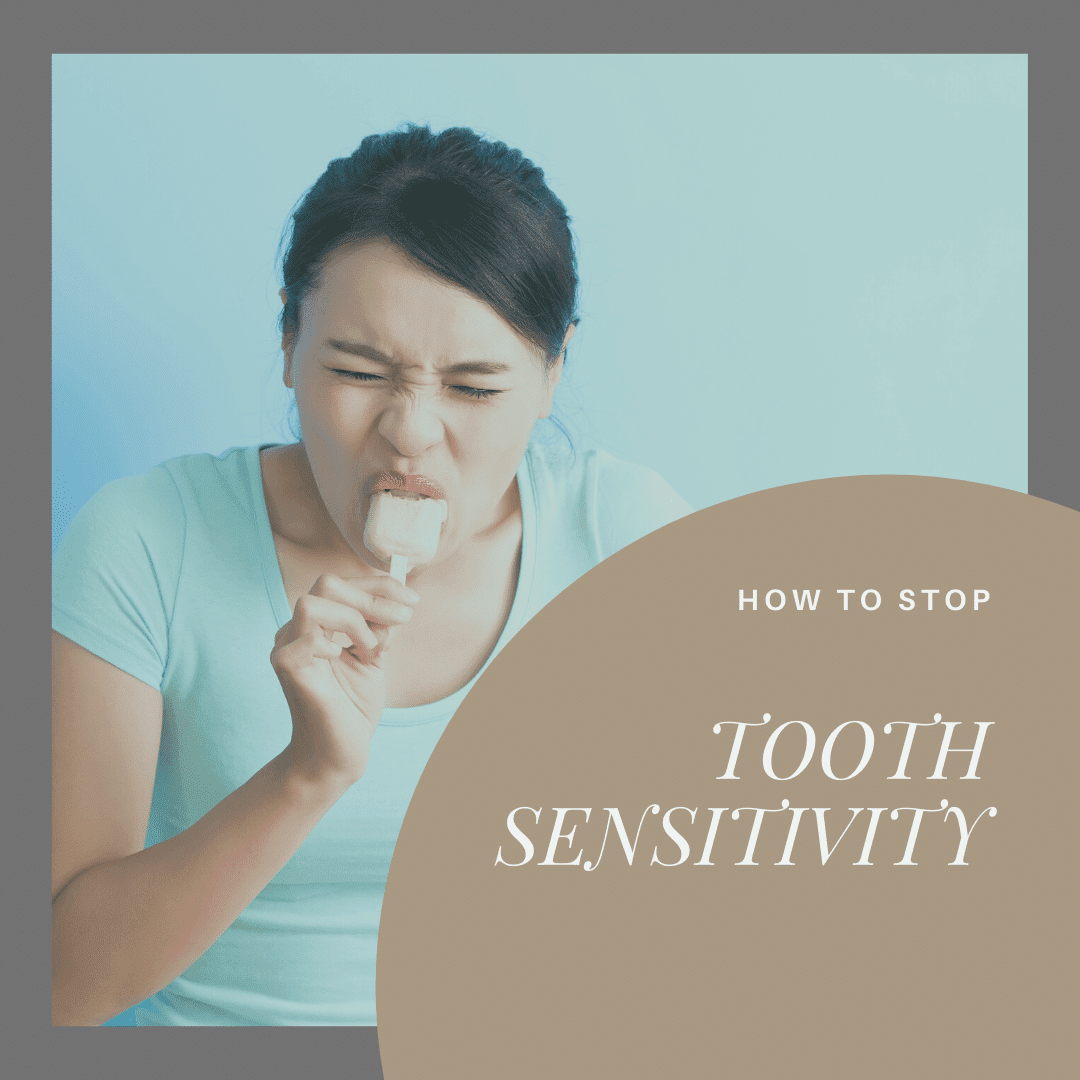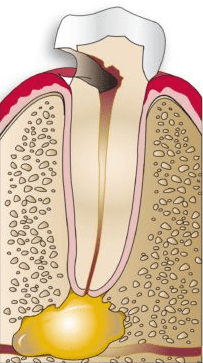How to Stop Tooth Sensitivity

Have you noticed a sudden, intense aching in your tooth when you eat or drink things that are hot, cold, or sweet? Has this irritating sensation started to prevent you from enjoying some of your favorite foods and beverages? Do you find yourself avoiding certain foods and beverages altogether? If so, you may be one of the many individuals who have sensitive teeth.
Tooth sensitivity is characterized by sudden pain in one or more teeth when exposed to certain temperatures or sugar. The main difference between tooth sensitivity and tooth pain is that tooth sensitivity will fade once the stimuli has been removed, while tooth pain is more of a constant sensation that can increase with pressure. Nevertheless, tooth sensitivity is irritating, even if it is only temporary.
For this reason, people with sensitive teeth usually try to find ways to alleviate tooth sensitivity. The process of stopping tooth sensitivity, however, can be tricky because the cause must be identified before the problem can be remedied. Therefore, it may take some time before results are noticed. To help get the process started, here are some common causes of sensitive teeth and ways to stop tooth sensitivity:
Decay

Your tooth’s enamel is its protective layer that prevents stimuli from entering the tooth. When bacteria erode the enamel, however, this allows stimuli into the tooth. Since the dentin layer under the enamel contains tubules that lead to the dental pulp, this allows stimuli to reach the tooth nerve. This, of course, irritates the nerve and leads to the resulting painful sensation.
Tooth decay is easily diagnosed by your general dentist. In causes of mild decay, composite fillings are usually used to fill in the cavity and seal the tooth. Larger cavities may require other restoration methods such as inlays, onlays, or dental crowns. Ultimately, removing the bacteria and sealing the tooth should resolve tooth sensitivity.
Worn Enamel
In some cases, there may be no decay present but stimuli is still able to enter the tooth as a result of worn enamel. When the enamel wears down, it can also allow stimuli to irritate the tooth nerve and cause pain. Enamel wear can occur as a result of brushing too hard with an abrasive surface, as well as from teeth grinding and clenching.
Although worn enamel cannot be reversed, you can use toothpastes for sensitive teeth to help reduce tooth sensitivity. Enamel wear can be prevented by using the proper brushing technique and brushing with a soft toothbrush. Additionally wearing night guard for teeth grinding and clenching can prevent both enamel wear and damaged teeth.
Gum Recession
The roots of your teeth are normally protected by your gums, therefore they have a thin layer of enamel. However if the gums recede, this exposes the tooth roots to external stimuli. Just like with worn enamel, this can allow stimuli to enter the tooth and irritate the nerve.
Gum recession can be caused by a number of things, but is most commonly the result of gum disease or brushing too hard. Mild gum disease can be treated by your dentist and can possibly be reversed, however advanced gum disease can only be managed. Nevertheless, it is still important to seek treatment to prevent the problem from getting worse. If you don’t have gum disease, then it is likely you are simply brushing too hard. Changing your brushing technique can encourage the gums to return to their normal position and alleviate tooth sensitivity.
Overall, stopping tooth sensitivity is a matter of first identifying its cause and then taking the appropriate action. The best way to identify or eliminate potential causes is to visit your local dental office for an exam. Your local dentist will be able to diagnose problems such as tooth decay, worn enamel, or gum disease, and treat this problems appropriately to help stop tooth sensitivity.

Dr. Lila Nabi earned her Doctor of Medical Dentistry (DMD) at the University of British Columbia and is a member of the following dental organizations: AACA, CACD, BCDA, CDA, BCDS, and KIA. She has completed extensive continuing education courses at the world renowned Kois Centre in Seattle, Washington, Oral Surgery Externship program at Loma Linda University, LA. She has also participated in over 200 hours of continuing education at the Spear Centre in Phoenix, Arizona led by Dr. Frank Spear. Dr. Nabi is active in an ongoing Implantology Study club in Vancouver.











